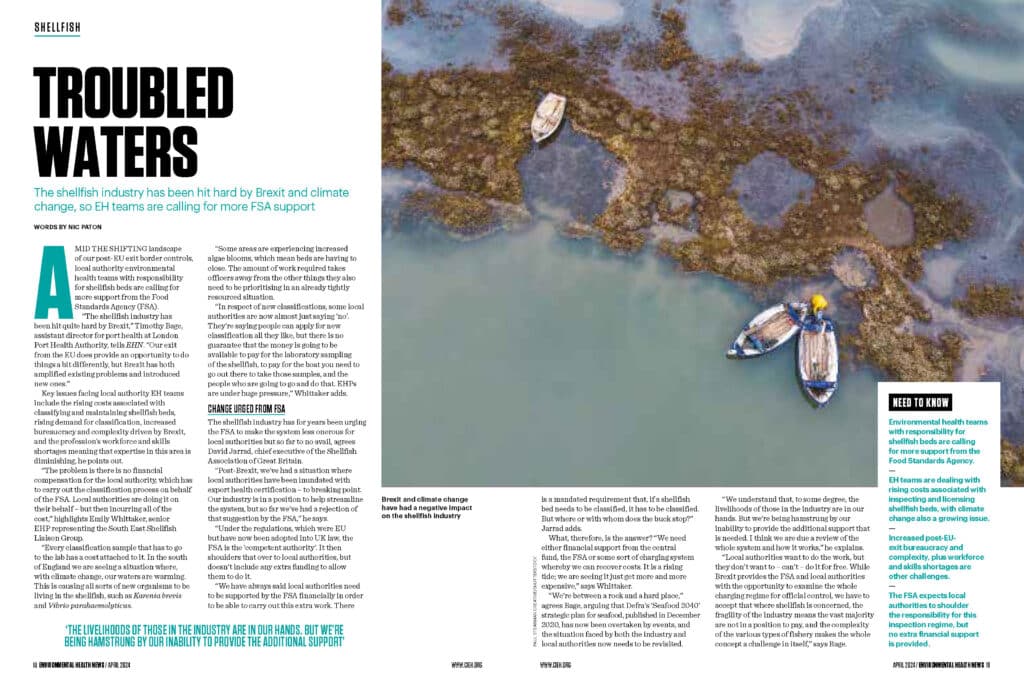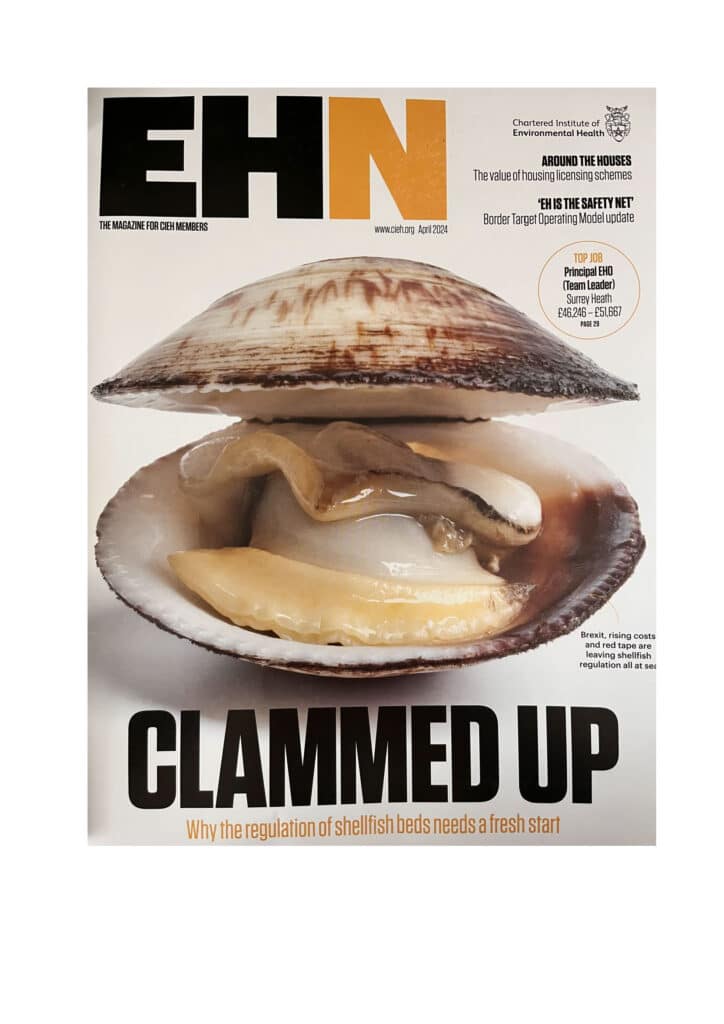
Amidst the changing landscape of post-EU exit border controls, local authority environmental health teams overseeing shellfish beds are sounding the alarm for increased support from the Food Standards Agency (FSA). Brexit has exacerbated existing challenges and introduced new complexities, leaving the shellfish industry in a precarious position.
Timothy Bage, assistant director for port health at London Port Health Authority, emphasizes the industry’s struggles, citing rising costs, increased bureaucracy, and workforce shortages. The burden falls on local authorities to classify and maintain shellfish beds, without adequate financial compensation.
Emily Whittaker, representing the South East Shellfish Liaison Group, highlights the financial strain on local authorities, with each classification sample incurring costs. Climate change further complicates matters, as warming waters introduce new organisms, leading to increased algae blooms and bed closures.
Despite industry appeals, David Jarrad, chief executive of the Shellfish Association of Great Britain, notes the FSA’s reluctance to alleviate the burden on local authorities. Urgent changes are needed to ensure sustainable support for the industry.
The solution lies in financial support from the central fund or the FSA, or the implementation of a charging system to recover costs. The current system, outlined in the EU regulations now adopted into UK law, requires a reassessment to address the evolving challenges post-Brexit.
As stakeholders call for a review of the system, it’s evident that while Brexit offers opportunities for reform, the fragility of the shellfish industry demands immediate action. The industry’s livelihoods and the integrity of shellfish controls are at stake, urging collaborative efforts to navigate these turbulent waters.
FULL ARTICLE BY CIEH https://www.cieh.org/
